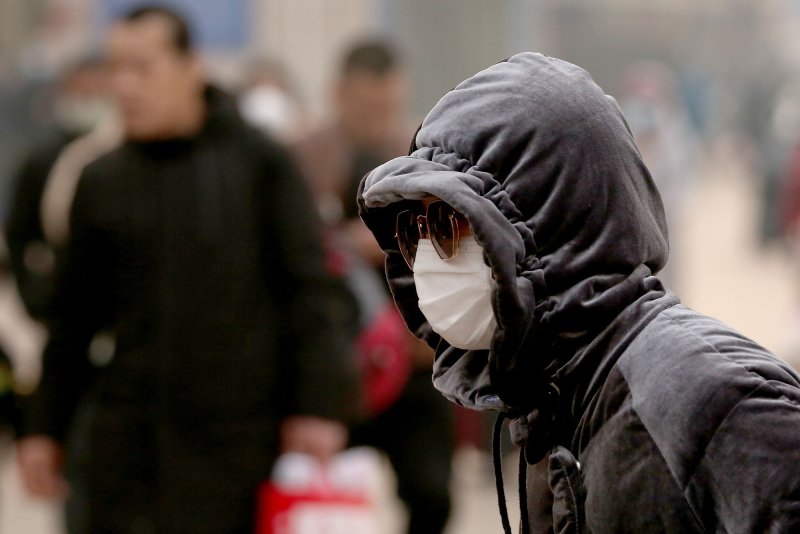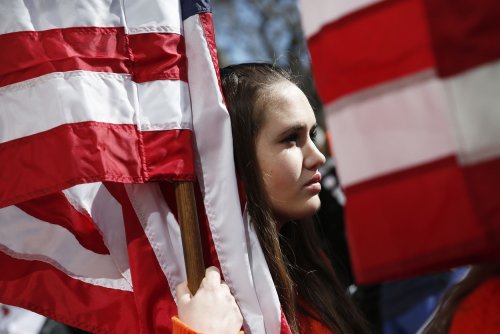U.S. national security adviser Robert O'Brien said the United States has offered to send health professionals to China to assist with the coronavirus but has not yet received a response. Photo by Stephen Shaver/UPI |
License Photo
Feb. 2 (UPI) -- U.S. national security adviser Robert O'Brien said Sunday that Americans should not be fearful of being infected with the coronavirus in the United States as the government takes steps to restrict travel from China and three more cases in the nation were reported.
Three weeks since the first death was announced in mainland China, the epicenter of the virus, 360 people have died from the outbreak there through Sunday. But no deaths have occurred in the United States though the first fatality outside China was announced in the Philippines.
"Right now, there's no reason for Americans to panic," he said on CBS's Face the Nation. "This is something that is a low risk, we think, in the U.S.
"But President Trump, from the day he took office, made protecting Americans and keeping them safe, whether it's from terrorists or criminal organizations or from viruses like the new novel coronavirus is top priority. So we're taking steps to keep Americans safe and the government is functioning in that direction."
There have been 17,387 confirmed cases of the coronavirus with all but around 150 in mainland China.
On Sunday, three more cases in the San Francisco bay area were confirmed for a total of 11 in the United States.
San Benito County's Health & Human Services Agency said a married couple had been diagnosed with coronavirus, raising the number of confirmed cases in the state to six. The husband, 57, had recently traveled to the virus' epicenter, Wuhan, China though his wife, 57, did not.
Spokesman Sam Perez said the cases were a "person-to-person transmission" -- joining two cases in Chicago.
Neither had left their home or been hospitalized since the husband returned from China, Perez said.
Also Sunday in California, the Santa Clara County health department confirmed a visitor from Wuhan, China, contracted the illness -- the second case there though officials said they aren't related. She had arrived on Jan. 23 to visit family and has remained at home since getting symptoms, except to seek medical care twice, and has not been hospitalized.
"I understand that people are concerned, but based on what we know today, the risk to general public remains low," said Dr. Sara Cody, health officer in the county said at a news conference. "A second case is not unexpected. With our large population and the amount of travel to China for both personal and business reasons, we will likely see more cases, including close contacts to our cases."
The eighth case is a University of Massachusetts student at the Boston campus in his 20s who returned from Wuhan on Wednesday and is now in quarantine. On Saturday, the CDC confirmed he had the virus Friday night.
The United States has declared coronavirus a public health emergency, temporarily denying entry to non-citizens who have visited China within the past 14 days. Also, citizens who have returned from Hubei in the past two weeks are subject to a mandatory quarantine for two weeks.
The Department of Homeland Security, in a news release Sunday, said the agency will begin enforcing restrictions on all flights from China at 5 p.m. Americans flying from China will be re-routed to seven airports at no additional cost: John F. Kennedy International Airport in New York, Chicago O'Hare International Airport, San Francisco International Airport, Seattle-Tacoma International Airport, Daniel K. Inouye International Airport in Honolulu, Los Angeles International Airport and Hartsfield-Jackson Atlanta International Airport.
The CDC will seek to identify potentially ill persons ahead of time, DHS said.
"While the overall risk to the American public remains low, funneling all flights with passengers who have recently been in China is the most important and prudent step we can take at this time to decrease the strain on public health officials screening incoming travelers," DHS Acting Secretary Chad F. Wolf said in the news release. "We realize this could provide added stress and prolong travel times for some individuals, however public health and security experts agree these measures are necessary to contain the virus and protect the American people. To minimize disruptions, CBP [Customs and Border Protection] and air carriers are working to identify qualifying passengers before their scheduled flights."
Multiple U.S. airlines have temporarily suspended flights to China.
China also has restricted international travel in an attempt to contain the virus.
O'Brien said the the United States has not received a response after offering assistance to China to respond to the coronavirus.
O'Brien said the United States has offered to send health professionals from the CDC and other medical and public health entities but "have not heard back from the Chinese on those offers."
"We've got the greatest medical system in the world and look, this is a worldwide concern," he said on CBS. "We want to help our Chinese colleagues if we can and we'll see. We've made the offer and we'll see if they accept the offer."
O'Brien added that Beijing has been "more transparent" about the circumstances surrounding the coronavirus than it has with past crises, but the United States could provide help with professionals "on the ground" in China.
"Right now the Chinese are providing information to us and we're taking that for what it's worth but at the same time we're monitoring ourselves," he said. "And what we're especially doing is monitoring the situation here in the United States to make sure Americans continue to be safe from this virus."
The White House National Economic Council and the Council of Economic Advisers are jointly assessing the potential short-term and long-term effects of the coronavirus after Commerce Secretary Wilbur Ross said the outbreak "will help" to persuade companies to move operations back to the United States and Mexico, The Washington Post reported.
O'Brien said he doesn't believe Ross meant that the outbreak will help the U.S. economy at the expense of China but rather that he was describing the risk of extending U.S. supply chains internationally.
"I think what Commerce Secretary Ross is saying is there's a danger, there's a risk factor in doing that and wouldn't it be better if we had supply chains and factories here in the U.S. so that our folks weren't facing some of the risks that you face when you're overseas," he said.















